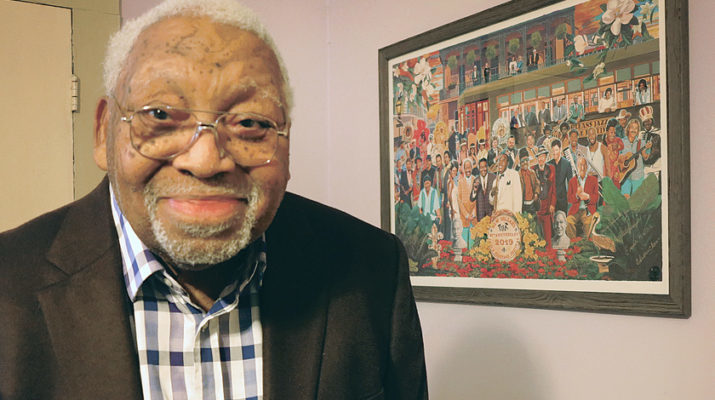The director of the Ellis Marsalis Center for Music confirmed the news of Ellis Marsalis Jr.’s death to WDSU anchor Gina Swanson.
he noted jazz pianist and educator is the father of internationally known musicians Branford and Wynton Marsalis.
Ellis Marsalis Jr. was 85.
In a statement Wednesday, New Orleans Mayor LaToya Cantrell said the city lost a legend when Marsalis died.
“He was the prototype of what we mean when we talk about New Orleans jazz,” Cantrell said. “He was a teacher, a father, and an icon — and words aren’t sufficient to describe the art, the joy and the wonder he showed the world. This loss cuts us deeply.”
When one thinks about jazz in New Orleans, it doesn’t take long for Ellis Marsalis’ name to come to mind.
The Louisiana Music Hall-of-Famer was born in the Crescent City in 1934 and was a bit different for his era — Dixieland and Rhythm & Blues were the norm for musicians. But Marsalis was all about jazz — playing it and teaching it.
His pupils included the likes of Terence Blanchard and Harry Connick, Jr.
Marsalis had six sons, including Wynton and Branford.
Wynton has won nine Grammy awards. Branford was the musical director of the Tonight Show with Jay Leno in the mid-1990s. Delfeayo and Jason are also jazz musicians. Ellis III is a poet and photographer.
But before his sons became famous in their own right, Ellis Marsalis paved the way. He started young, studying at the Xavier Junior School of Music and took up the clarinet at 11 years old.
In 1949, at age 13, he played the tenor saxophone in his first professional gig with the Groovy Boys.
He majored in music at Dillard University and began studying piano after graduation. In 1956, after joining the U.S. Marines, Marsalis played piano in the Marine group “Corps Four,” which performed weekly on TV in Los Angeles.
He returned to New Orleans in 1958 and got married. Then in 1962, he got his first six-night-a-week job at the New Orleans Playboy Club. It only lasted three months, but it was a steady job.
Five years later, Marsalis joined the Al Hirt band, then, in 1971, became the pianist for Southern Repertory Theater. Following graduate school at Loyola University, he worked at the New Orleans Center for Creative Arts.
Years later — in 2001 — he performed at a concert at the University of New Orleans with his sons celebrating his well-deserved retirement.
Tulane University awarded Marsalis an honorary doctorate in 2007 for his contributions to jazz and musical education.
At Musician’s Village in the 9th Ward, which was built after Hurricane Katrina, the Ellis Marsalis Center for Music was established in 2011. The performance, education and recording venue is a 17,000 square foot facility that includes a 170-seat performance space along with state of the art light and sound — a tangible reminder of what Marsalis meant to the city.
One of the musical families that New Orleans is built around has lost its patriarch. But the name he spent years building is synonymous with jazz in New Orleans. And that will never change.










